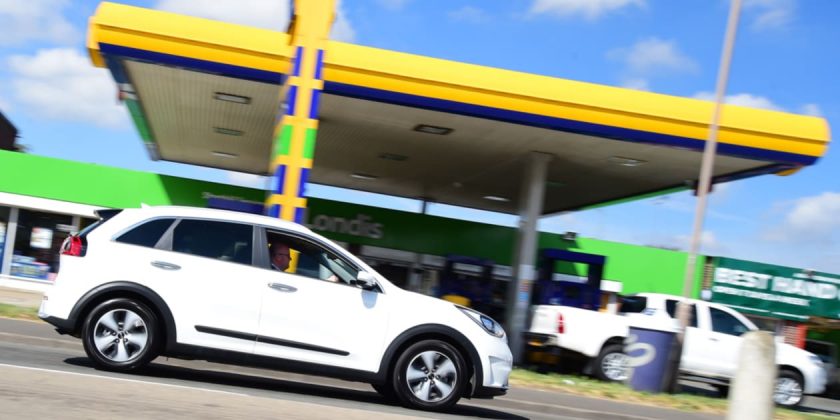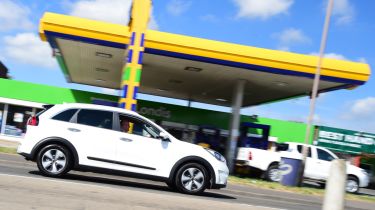Retailers are pocketing bigger margins on petrol and diesel, instead of passing on the 12p per litre oil price cut
Latest figures from RAC Fuel Watch reveal the price of oil fell by $10 to $73 a barrel last week, but the UK’s petrol retailers are hanging on to extra margin instead of cutting pump prices.
According to the RAC’s analysts, unleaded is now priced at 12p a litre more than it should be, while diesel is 10p per litre too expensive.
E10 petrol explained: UK prices, checker tool and is it OK for your car?
These figures are based on the RAC assessment that the average forecourt price for unleaded is 147.64p a litre while the diesel average is 150.85p. Had the drop in oil prices been passed on, the average price would be 135p and 141p respectively.
The RAC said retailers have been living up to the worst ‘rocket and feather’ behaviour by resisting reducing their pump prices in stark contrast to what they do when wholesale prices go up, which is to pass on increases daily.
“Ten days ago we highlighted that petrol was 6p too expensive due to a fall in the wholesale price. Sadly, the biggest retailers, who lead the market, have stood strong and taken advantage of their customers by collecting bigger profits on every litre they sell than they traditionally do,” RAC fuel spokesman Simon Williams said.
“On Friday news of the Omicron Covid variant caused $10 to be shaved off the oil price, leading to a further drop in the wholesale price of fuel. We estimate that retailers are now making around 19p a litre, which is shocking when you consider their average margin pre-Covid was 6p. The profit on diesel is around 15p a litre with a similar long-term average margin to petrol. Based on the fact the biggest retailers buy new supply every week we believe unleaded is 12p too expensive and diesel about 10p too dear.
“While retailers might resent the RAC pointing out that their fuel is overpriced, this doesn’t change the fact that they should cut. And if they don’t, we feel they will lose credibility with drivers, although it’s very difficult for motorists to vote with their feet because they have nowhere else to go.
“If a substantial cut doesn’t materialise, we feel this is worthy of government scrutiny because there’s no public body monitoring fuel prices to see if they’re fair.
“With fuel prices at record highs drivers are in dire need of some respite at the pumps and now it’s impossible to blame the prices on rising oil costs. It seems as though retailers think they can get away with charging more for fuel because of the public’s general acceptance of rising energy prices.”
What makes up the price of UK fuel?
The price of fuel can be divided into three sections; the taxes imposed by the Government, the costs of drilling, refining and transporting, and the profit margins for the fuel companies.
For petrol, diesel and bioethanols, the Government gets around 65 per cent of the overall cost through fuel duty and value added tax (VAT). The fuel duty represents the fixed price of fuel – it stays the same regardless how much overall oil prices fluctuate. Currently, the Treasury adds 57.95 pence to each litre of fuel through fuel duty, and another 20 per cent through VAT. How much you pay in VAT depends on how much fuel you purchase.
The second biggest chunk comes from the wholesale costs of the fuel itself. The wholesale cost is a combination of currency exchange rates, global oil prices, and even domestic supply and demand.
New 450kW EV charger from BMW and Porsche is as fast as filling up with petrol
Finally, the smallest share of what motorists have to pay for fuel comes from the filling stations themselves. A typical fuel station profits around 2p-5p per litre, but tough competition can drive this down further. Supermarkets increasingly use fuel prices as a loss leader to tempt customers in.
Why is supermarket fuel cheaper than an independent forecourt?
Supermarket forecourts usually offer the cheapest fuel prices and this is because of the market power supermarkets hold. Companies like Asda, Tesco, Sainsbury’s and Morrisons are all in competition with one another, so they keep fuel prices as low as possible hoping that when motorists come to fill their tank, they might do their weekly grocery shopping, too.
There are persistent rumours that supermarket fuel contains fewer additives and is of lesser quality than fuel from traditional forecourts, but there’s little hard evidence of this. All fuel sold in the UK has to abide by the standards set in the Motor Fuel Regulation.
Why is fuel so expensive on motorways?
Motorway fuel stations argue the reason their prices are higher is that many of them are open 24 hours a day and offer more services than a regular forecourt. Motorway fuel stations also pay high rent prices for the buildings they operate.
In more remote areas, fuel is often more expensive because of the higher transport and supply costs, but according to RAC fuel spokesman Simon Williams, this doesn’t apply to motorway stations: “We can see no reason why motorway fuel should be so much more expensive. In fact, arguably it is much easier from a delivery point of view than it is getting fuel to urban filling stations.”
Why is diesel more expensive than petrol?
Although diesel and petrol are taxed the same by the Treasury, historically diesel has been more expensive than petrol, as domestic refineries have struggled to meet demand. This has forced the UK to import diesel from other countries at a greater rate than petrol. In addition, diesel prices are pushed up by the cost of the additives that go into the fuel.
Best diesel cars 2021
Furthermore, the gap between UK petrol and diesel prices widens during the winter. The end of the US “driving season” means retailers have a surplus of petrol they can’t export, so they sell it here at a lower price. Diesel demand, meanwhile, increases across continental Europe, where the fuel is commonly used in heating oil.
However, the influx of cheap diesel from countries like Saudi Arabia has turned the tide, swinging diesel wholesale prices closer to that of petrol, and bringing the pump price down with it.
What's your view on fuel prices in the UK? Do we pay too much for our petrol and diesel? What would you do about it? Join the debate in our comments section below…
Source: Read Full Article


 E10 petrol explained: UK prices, checker tool and is it OK for your car?
E10 petrol explained: UK prices, checker tool and is it OK for your car? New 450kW EV charger from BMW and Porsche is as fast as filling up with petrol
New 450kW EV charger from BMW and Porsche is as fast as filling up with petrol Best diesel cars 2021
Best diesel cars 2021